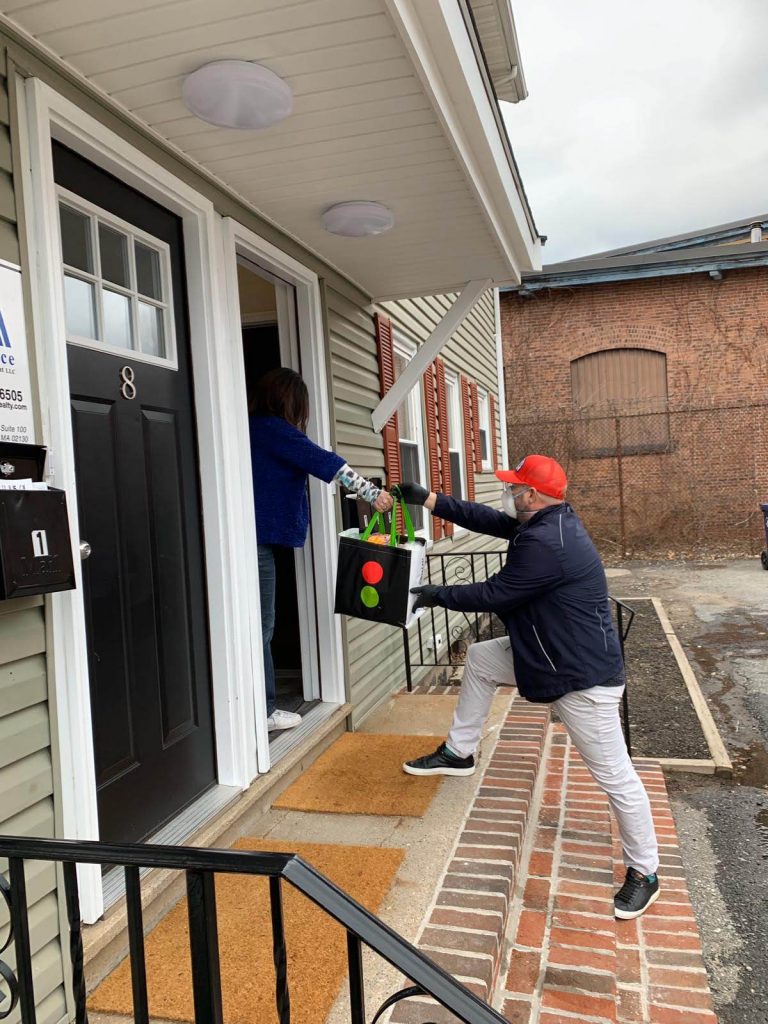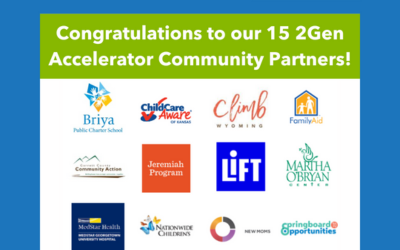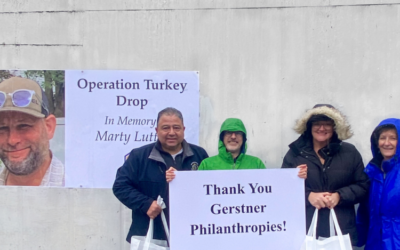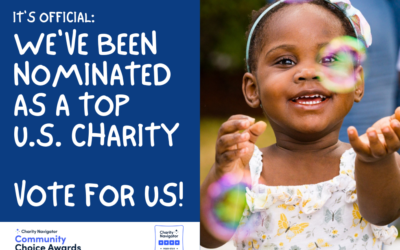A Day of Humanitarian Aid
Just three weeks ago, I joined my FamilyAid Boston colleagues as we set out on the first round of deliveries giving food and supplies to families who are at home and in shelters without work or school because of the coronavirus. FamilyAid Boston doesn’t normally provide these items or coordinate deliveries, so all of my colleagues with me that day were volunteering their Saturday to ensure families had the food and supplies they needed.
I hadn’t been in our office for two weeks, since we were sent to work from home to protect our health. The transformation of the conference rooms and hallways was startling: it was now a humanitarian relief center. We entered a hallway lined with grocery bags filled with food, personal hygiene products, diapers, and cleaning supplies, each bag customized for that family’s needs based on a survey that our social workers had conducted earlier that same week with every family in our care. Neatly stacked non-perishable supplies filled the first conference room, and disposable gloves, masks, goggles, and four kinds of disinfecting products filled the second.
FamilyAid Boston’s Marty Luttrell, Director of Facilities Management, and Robin Avila, Compliance Coordinator, were in charge of this massive operation, with Marty instructing us on the use of personal protective gear and sanitizing procedures during our deliveries, and Robin overseeing the delivery process itself. We divided up the delivery sites, trying to group them by neighborhood as best as possible. I was assigned families in Dorchester, Roslindale, Hyde Park and Jamaica Plain, with one outlier in South Boston. Before leaving, I tried to reach every family on my list to see if they would be home for a few hours so I could deliver their supplies. When they heard I was calling from FamilyAid Boston, their relief and their gratitude was evident knowing they were getting food and supplies they needed. There was no phone listed for one of the families on my route, but I decided to take a chance and just stop by anyway, knowing how desperately our clients needed the supplies.
I loaded up my car with bags for 10 families and plotted my route around the city. Before getting out at the first apartment building, I put on my mask, goggles and a pair of gloves. Despite overheating inside the mask and goggles, I needed to leave them on, untouched, all day so I wouldn’t possibly contaminate myself by taking them on and off. I protected our families that way, too, changing gloves with each stop, wiping down doorbells and doorknobs, and not coming inside anyone’s homes.
I think everyone can agree that Boston’s streets are strangely laid out. On one delivery, I went down a one-way street in order to make a loop to get to the one-way street going the opposite direction where my delivery was located. But that street was blocked off for road repairs, so I parked on the street I’d come in on and walked a block in my mask, goggles and gloves, making people nervous as I passed them on the street. This was before wearing masks became routine.
One of my final stops was delivering to the family that I hadn’t been able to call first. I rang the bell a few times until a very frightened woman peered through her blinds next to the front door. She kept yelling at me to leave. I suddenly realized that I looked scary in my mask, goggles and gloves, and I didn’t blame her for not opening the door. When she realized I was from FamilyAid Boston and did not have the coronavirus, she readily opened the door and thanked me profusely for the delivery. This delivery made me realize how much our families trust us and how important our new humanitarian relief work is.
It was an exhausting day, sometimes nerve-wracking as I got lost or worried about infection, but mostly deeply satisfying. Seeing the surprise on our clients’ faces when they saw the quantity of food and supplies being delivered straight to their door was a gratifying and humbling experience. I was honored to join with my dedicated colleagues to help our clients stay safe and cared for during this truly frightening time.
By Deb Watrous, Grant Writer



